Receiving money in exchange for religious work, same as consuming fire
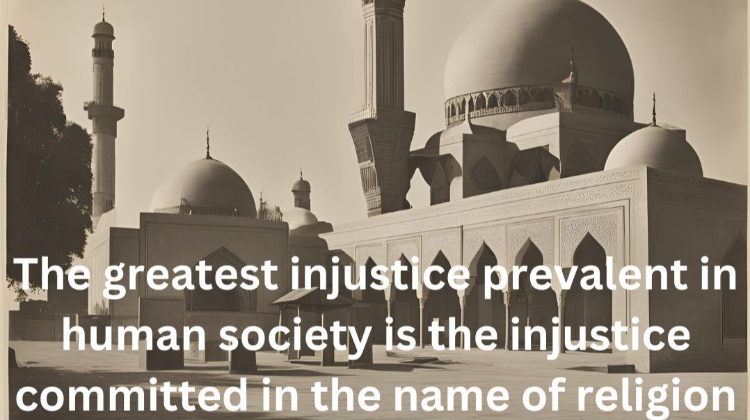
The greatest injustice prevalent in human society is the injustice committed in the name of religion. The biggest deceiver is the person who exploits religion to deceive others, as they manipulate people's faith in Allah, His Messenger,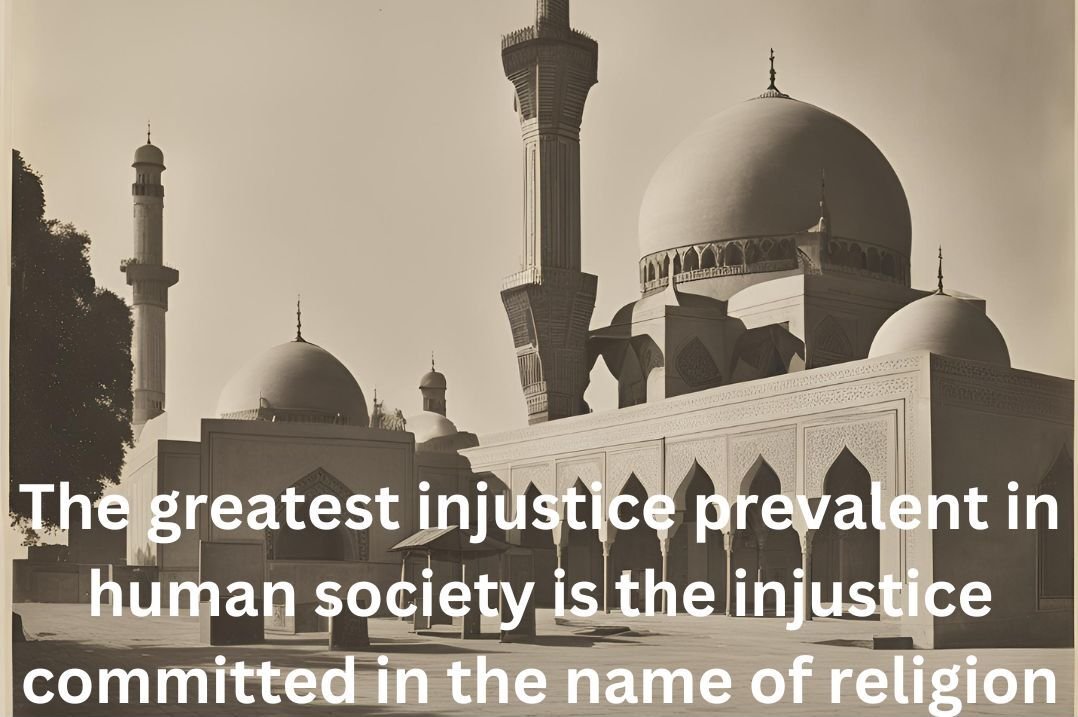 the Scriptures, and the afterlife.
the Scriptures, and the afterlife.
Islam is the final system of life sent by Allah, a code of life that, when practiced, ensures peace on earth and salvation in the hereafter. When people exploit Islam for personal gain, turning it into a commercial product or a means of livelihood, Islam loses its true essence. This distorted form of Islam neither brings peace to society nor guarantees salvation in the afterlife. The Islam meant to liberate humanity then becomes a tool of oppression. Religious profiteers engage in two main activities:
1. They conceal the laws revealed by Allah. We know that one of the meanings of the word "kufr" is to conceal or cover up.
2. They receive money in exchange for various religious ceremonial works.
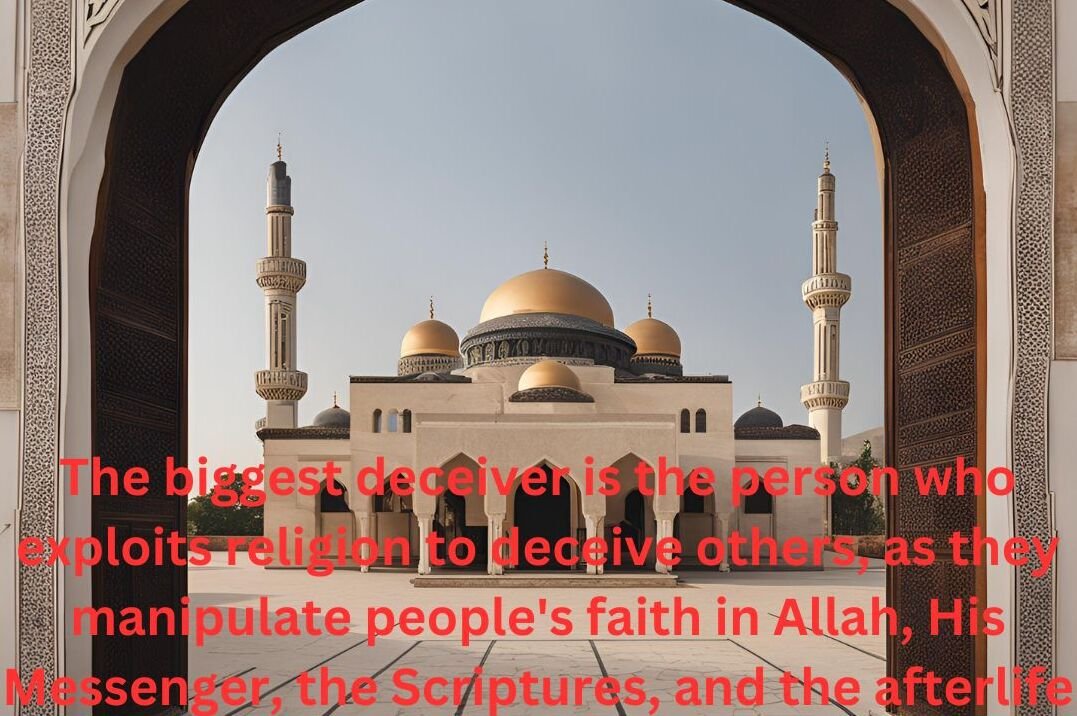
In numerous verses of the Holy Qur'an, Allah mentions the consequences of religious profiteering, the punishment for it, and the strict stance taken by the earliers Messenger against it. The Messenger of Allah (PBUH) faced strong opposition from the religious profiteers of Arabia. Many previous Messengers were accused of blasphemy or religious insult by such profiteers, who incited state powers or the public against them, leading to their murder. Allah has not only forbidden this religious profiteering but has also equated it to consuming fire. Allah says:
"Indeed, those who conceal what Allah has revealed in the Book and exchange it for a small price—they consume nothing but fire into their bellies. Allah will not speak to them on the Day of Resurrection, nor will He purify them. And they will have a painful punishment. They are the ones who have purchased error in exchange for guidance and punishment in exchange for forgiveness" (Qur'an, 2:174-175). And in exchange for forgiveness, they have accepted punishment. How patient they are in enduring the Fire!" (Surah Al-Baqarah, 2:174)
This verse proclaims a very important principle of Islam: receiving material benefits in exchange for religion is an unforgivable crime and sin. Let us delve deeper into the verse. Allah says that those who conceal the laws and teachings of the Book revealed by Allah and seek material gain or self-interest in exchange for religion—
1. "They eat nothing but fire." This means that all they consume, whether lawful or unlawful, will all turn into Hellfire. Just as fire consumes everything, this practice of engaging in religion for material gain or self-interest destroys all their good deeds.
2. "On the Day of Resurrection, Allah will not speak to them." Allah not speaking to those He dislikes signifies the severity of the crime. Can we imagine the horror of being ignored by Allah on Judgment Day?
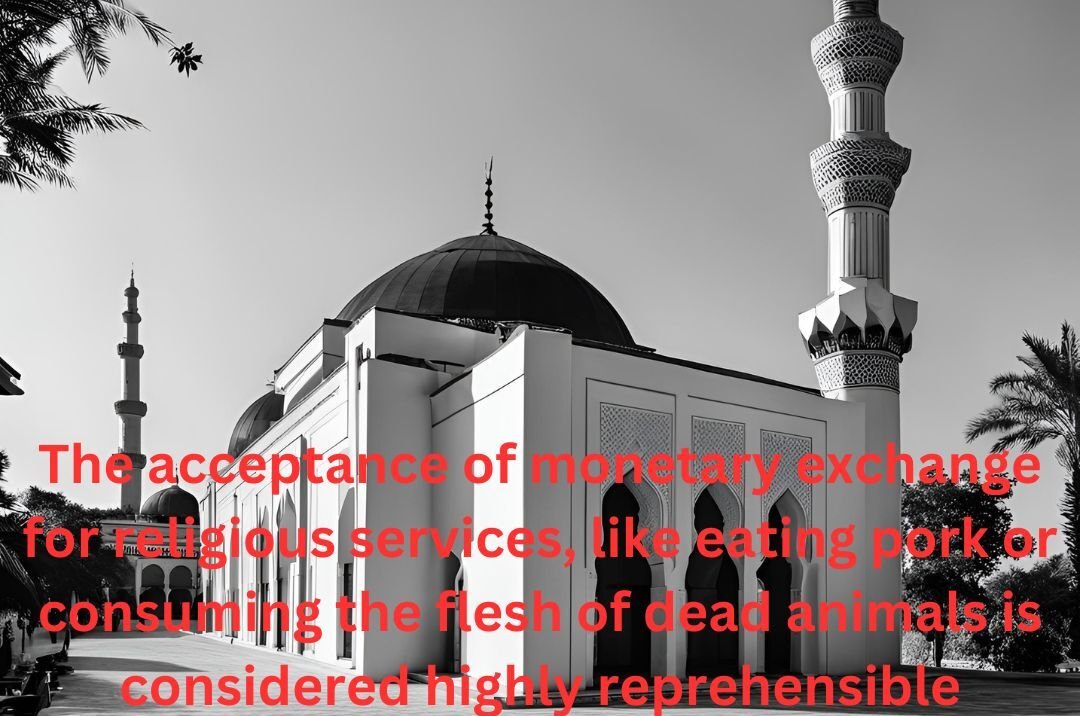
3. "Nor will Allah purify them." Allah will not purify these traders in religion. This means they are not considered true believers in the eyes of Allah. Hence, despite Allah's infinite mercy, they will be deprived of His forgiveness.
4. "For them is a painful punishment." After stating this, there remains no room for doubt or dualism in supporting the violators who work for personal gain.
5. "They have deviated from the path of guidance in exchange for selfish gains." We go to scholars to listen to their sermons in the hope of finding the right path, but Allah has said that those who work for their personal gain through religion have deviated from the right path. How can one who has deviated from the right path show another the way? Besides, those who pay for religion are not influenced by their words. Therefore, Allah Almighty said, "Follow those who do not seek any exchange in return"
However, in reality, we see in our society a class of religiously dressed individuals who engage in various religious activities such as giving the call to prayer, leading the congregation, conducting funerals, reciting Milad (celebratory events marking the Messenger's birthday), officiating marriages, completing the Quran recitations, delivering sermons, and so on—all in exchange earthly gains. Yet, the acceptance of monetary exchange for religious services, like eating pork or consuming the flesh of dead animals is considered highly reprehensible. No, this is not our saying. Prior to this verse, in Surah Al-Baqarah, verse 173, Allah states:
 "He has only forbidden to you dead animals, blood, the flesh of swine, and that which has been dedicated to other than Allah. But whoever is forced by necessity, neither desiring it nor transgressing its limit - then indeed, Allah is Forgiving and Merciful."
"He has only forbidden to you dead animals, blood, the flesh of swine, and that which has been dedicated to other than Allah. But whoever is forced by necessity, neither desiring it nor transgressing its limit - then indeed, Allah is Forgiving and Merciful."
Notice that in this verse, Allah has prohibited several items for consumption, but He has given a promise of forgiveness to those who are compelled by necessity to consume them under specific circumstances. However, in the subsequent verse where Allah refers to monetary exchange for religious services as equivalent to "eating fire," He does not mention any promise of forgiveness for such acts. Instead, He states, "For them is a painful punishment." This makes it clear that under no circumstances can exploiting religion for personal gain, less so as a means of livelihood, be justified in the eyes of Allah.
Seeking a lawful livelihood has numerous permissible paths, such as through honest work, trade, and lawful professions. However, engaging in theft,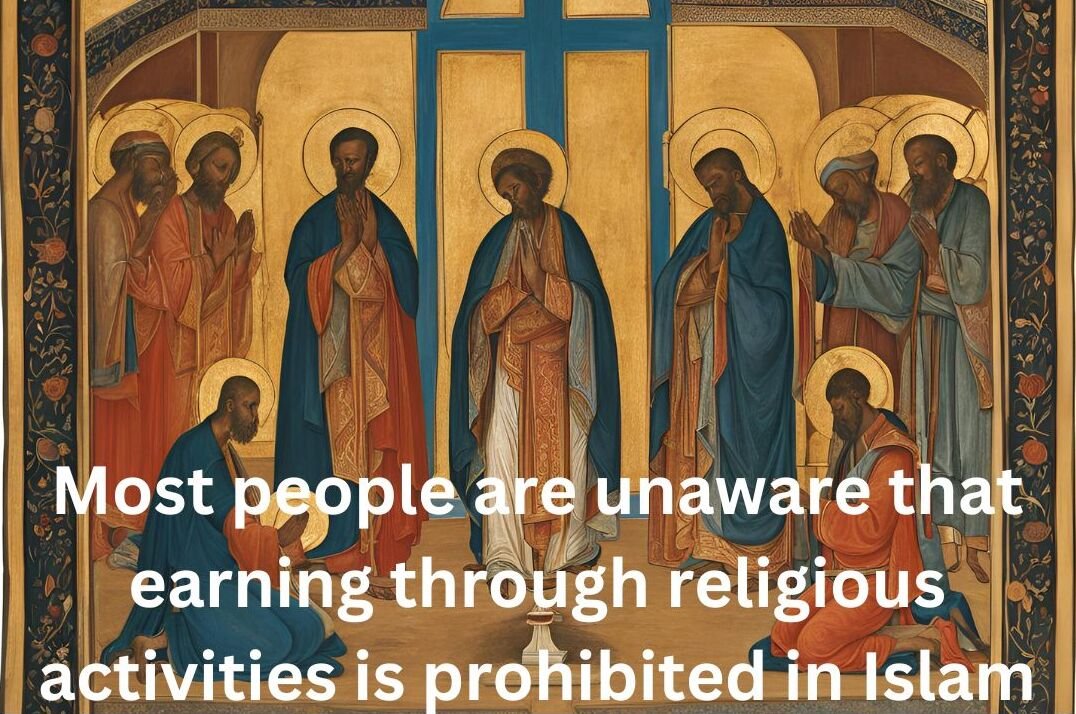 robbery, usury, gambling, dishonesty, drug trafficking, exploiting religion for personal gain, or trading Islamic teachings in exchange for money are all forms of forbidden earnings. The Messenger of Allah (peace be upon him) emphasized that finding lawful sustenance is an obligation upon every Muslim, and accepting only lawful food and drink is essential for the acceptance of worship. He also warned against a person who raises their hands in supplication, saying, "O Allah, O Allah!" while their sustenance, drink, and clothing are all derived from forbidden earnings. Such a person's supplication, he warned, may not be accepted due to the impurity of their income (Sahih Muslim).
robbery, usury, gambling, dishonesty, drug trafficking, exploiting religion for personal gain, or trading Islamic teachings in exchange for money are all forms of forbidden earnings. The Messenger of Allah (peace be upon him) emphasized that finding lawful sustenance is an obligation upon every Muslim, and accepting only lawful food and drink is essential for the acceptance of worship. He also warned against a person who raises their hands in supplication, saying, "O Allah, O Allah!" while their sustenance, drink, and clothing are all derived from forbidden earnings. Such a person's supplication, he warned, may not be accepted due to the impurity of their income (Sahih Muslim).
The dilemma arises when a person wears the facade of religious piety while engaging in forbidden earnings themselves. How can such a person issue rulings or advice to others on what is lawful and unlawful? One of the reasons for this confusion is that most people are unaware that earning through religious activities is prohibited in Islam.
Images Related to this Post



















Leave a Comment